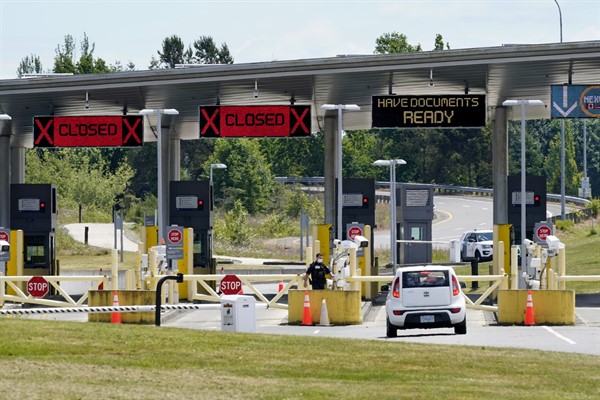In trying to take stock of 2021, it’s hard to draw definitive conclusions, given all the seemingly contradictory trends on display over the past 12 months. The year began with the almost miraculous rollout of coronavirus vaccines, less than a year after the onset of the global pandemic that upended life across the planet. But it ends with huge disparities in access to those vaccines among nations and regions, and a small but significant proportion of people rejecting them even in the wealthy countries that do have easy access to them.
Though it opened with scenes of shocking violence in the U.S. Capitol, the year also ushered in the inauguration of a U.S. president whose more conventional approach to U.S. foreign policy promised to shore up multilateralism and the international order. But it ends with an ongoing civil war in Ethiopia and a brewing one in Myanmar, and the threat of interstate war in Europe on a scale not seen since World War II.
On democracy and human rights, too, the year’s developments were just as dispiriting, with a series of military coups in Guinea, Mali, Sudan and Myanmar; a presidential coup in Tunisia; sham elections in Nicaragua; and ongoing democratic backsliding in El Salvador, Poland, Hungary and the United States. And it draws to a close with a Summit for Democracy that, for all its symbolic value, rang hollow in terms of its practical impact, as if to underscore the challenges facing liberalism and pluralistic societies across the world.

